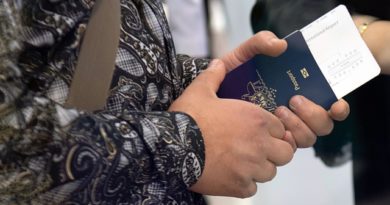Disrupting Arms Trafficking in Somali Waters
Across the Gulf of Aden, weapons are reportedly illegally trafficked to terrorist and organized criminal groups in Somalia and the region, increasing the possibility of violence against civilians, funding further illicit activity, and undermining the effectiveness of the partial arms embargo by the UN Security Council. That is partly why the UNODC Global Maritime Crime Programme is delivering a series of activities to enhance the capacity of Somali maritime law enforcement to disrupt arms trafficking and associated crimes by sea.
GMCP UNODC Denmark Mombasa 2022In Puntland, for instance, UNODC continues to partner with the Bossaso Port Maritime Police Unit (BPMPU) to provide a wide range of localized support, including to build officers’ marine mechanical skills for the maintenance of engines that enable consistent patrolling of territorial waters to interdict vessels suspected of trafficking weapons. The BPMPU Commander, Col. Warsame Ahmed Shirwac, explained that UNODC’s help has enabled the Unit to “Deter many illegal activities by conducting anti-maritime crime operations, leading to several successful seizures over the past two months.”
In May 2023, six officers and inspectors of the BPMPU completed a four-week boat crew engineering course, acquiring theoretical and practical familiarity with outboard engine servicing, storage, and transportation. Importantly, officers also learned standard underway operation checks and fire prevention techniques for streamlined safety inspections and responses. Of the six participants, all reported that the course helped them to better meet the BPMPU’s mission of enhancing the security of territorial waters.
The instructor of the training, Mr. Anil Kulatunga, explained that “Engine maintenance and fire prevention are fundamental capabilities for any maritime law enforcement unit to execute patrol operations in response to maritime crimes, including the trafficking in weapons and ammunition, which remains a threat in Somali water.” Without effective maritime policing of arms trafficking, government tracking of equipment and supplies banned by the Security Council is rendered even more difficult.
Looking ahead, the UNODC Global Maritime Crime Programme intends to maintain its support to the BPMPU and other Somali maritime law enforcement units, including by expanding its scope of training to maritime crime scene preservation, thanks to funding from the United States Department of State Bureau of International Narcotics and Law Enforcement Affairs.



